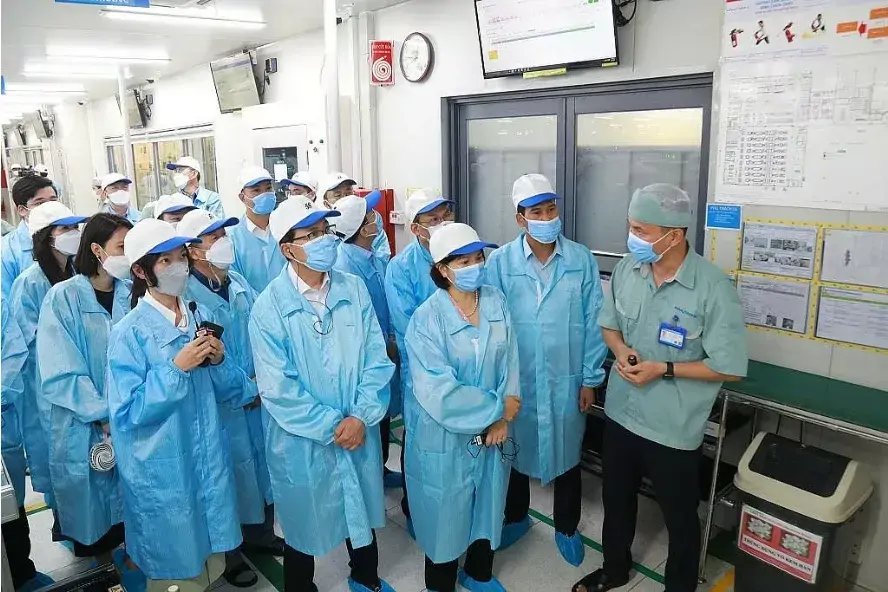27/05/2025
Smart Factories – A Strategic Shift to Elevate Vietnam’s Supporting Industries
As global supply chains continue to evolve and competition intensifies both internationally and domestically, many Vietnamese supporting industry enterprises are exploring the adoption of smart factory models as a practical solution to improve efficiency, reduce operational costs, and meet higher production standards.To support this transition, the Ministry of Industry and Trade (MOIT), in cooperation with Samsung Vietnam, has implemented the Smart Factory Development Support Project since 2022. The initiative focuses on assisting businesses in integrating digital technologies and automated systems into their production processes. Over three years (2022–2024), the project has provided consulting services to 72 enterprises and trained 122 Vietnamese professionals in smart factory development. These efforts aim to help businesses gradually improve their production systems and internal capabilities.The Smart Factory Development Support Project has brought many positive changes to participating enterprises.Through a structured approach combining theoretical training and on-site consultation, participating companies have begun to integrate real-time data collection, analysis tools, and automation into their operations. This allows for more informed decision-making, streamlined workflows, and better control over quality and productivity. In many cases, manual processes have been replaced or upgraded with more automated solutions, helping companies shorten production cycles and respond more effectively to customer demands.The project’s outcomes show that smart factory practices can support enterprises in improving management systems, enhancing production consistency, and aligning with the operational requirements of global partners. Additionally, the training and consulting provided during the program have contributed to building a base of local experts capable of continuing support and improvement efforts beyond the initial implementation phase.In 2025, the program is set to continue with the goal of supporting an additional group of enterprises from both northern and southern regions of Vietnam. The process includes selecting suitable businesses, providing in-depth evaluations, and guiding the implementation of digital production tools and management systems. This includes a period of theoretical training, followed by hands-on consulting aimed at optimizing production sites and laying the groundwork for ongoing improvement. Through the Smart Factory Development Project, Vietnamese enterprises can strengthen their competitiveness to meet global standards across the entire value chain, including product development, manufacturing, and sales.Alongside production improvements, the initiative also contributes to broader goals, such as increasing the localization of manufacturing, enhancing supplier capabilities, and fostering stronger links between Vietnamese enterprises and larger global manufacturers. These efforts are part of a long-term strategy to strengthen Vietnam’s industrial base, in line with national development plans through 2030 and beyond.The partnership between MOIT and Samsung Vietnam reflects a cooperative model between government and business that helps enterprises gain access to resources, expertise, and practical methods for operational improvement. Rather than a one-size-fits-all approach, the program encourages step-by-step adaptation tailored to each company’s specific context.For many businesses, adopting smart factory models is not simply a matter of technology, but part of a broader shift toward more data-informed, efficient, and responsive manufacturing practices. As these efforts continue, they offer participating enterprises a chance to improve competitiveness and better align with the evolving needs of the global supply chain.Source: congthuong.vn
Read more_2025-05-29-09-29-00-573.webp)



_2025-05-26-03-32-40-256.webp)